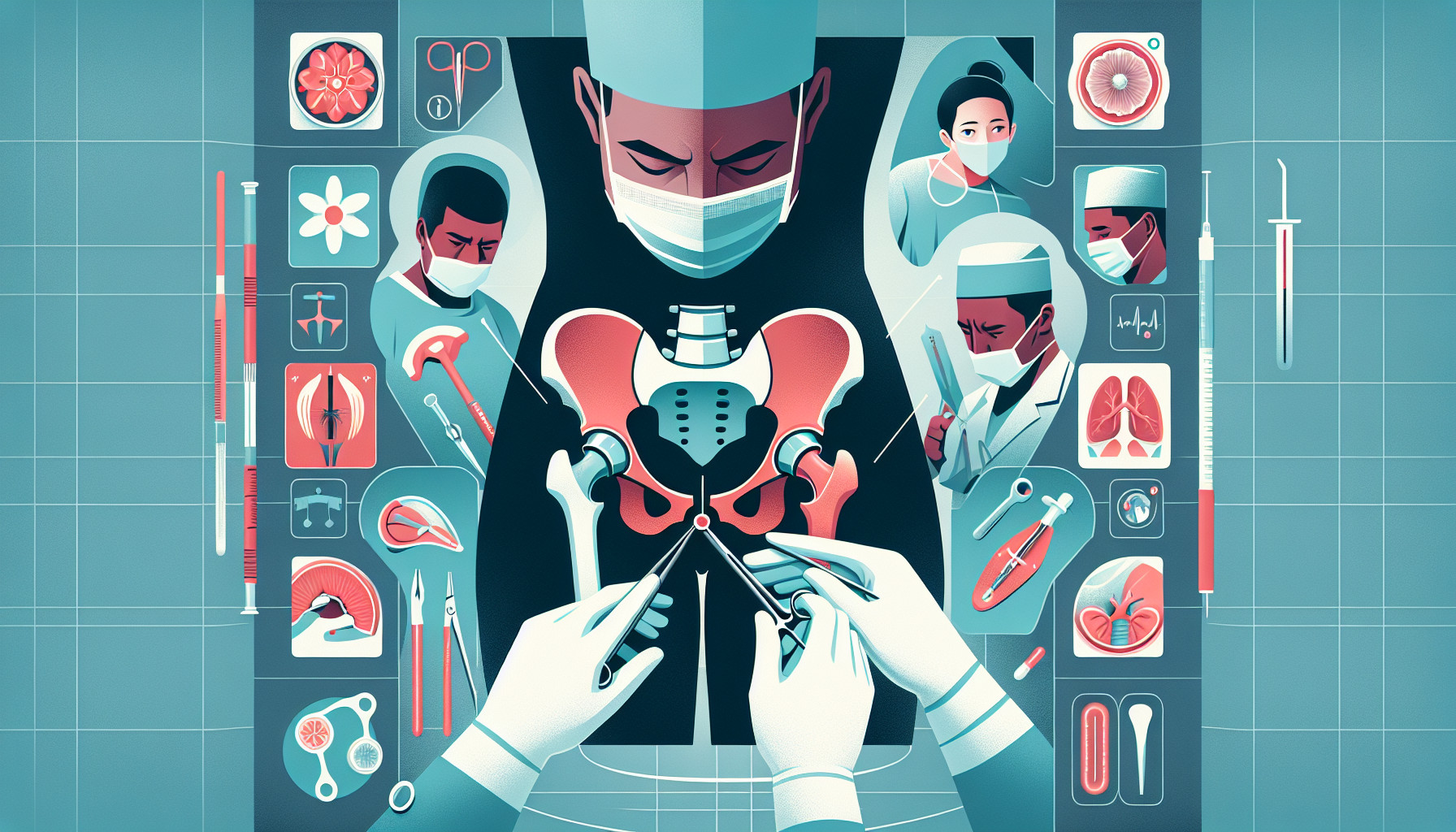Our Summary
This research paper looks at how different types of implants can prevent instability after a revision total hip replacement surgery. The study found that dual mobility implants seem to work best. However, the studies they looked at were all quite small and had different designs. Because of this, the researchers believe that larger, more controlled studies are needed to definitively say which type of implant is best for reducing instability after this type of surgery.
FAQs
- What type of implant was found to work best in preventing instability after a revision total hip replacement surgery?
- What were the limitations of the studies reviewed in this research paper?
- Why do the researchers believe larger, more controlled studies are necessary?
Doctor’s Tip
One helpful tip a doctor might tell a patient about hip replacement is to follow their post-operative rehabilitation plan closely. This may include physical therapy exercises to strengthen the hip muscles, improve range of motion, and promote proper healing. It is important to adhere to the recommended activity restrictions and precautions to prevent complications and ensure a successful recovery. Regular follow-up appointments with the surgeon are also essential to monitor progress and address any concerns.
Suitable For
Patients who are typically recommended for a hip replacement surgery are those who are experiencing severe pain and limited mobility due to conditions such as osteoarthritis, rheumatoid arthritis, avascular necrosis, or hip fractures. These patients may have tried conservative treatments such as physical therapy, medications, or injections without success.
Additionally, patients who have failed previous hip surgeries or have a history of hip dislocations may also be recommended for a hip replacement procedure. It is important for patients to undergo a thorough evaluation by a healthcare provider to determine if they are a suitable candidate for hip replacement surgery.
Overall, the decision to recommend hip replacement surgery is based on individual factors such as age, overall health, severity of symptoms, and the patient’s goals and expectations for the surgery. It is important for patients to discuss their options with their healthcare provider to determine the best course of treatment for their specific condition.
Timeline
Before hip replacement:
- Patient experiences chronic hip pain and limited mobility
- Patient consults with orthopedic surgeon and undergoes physical examination and diagnostic tests
- Surgeon recommends hip replacement surgery as treatment option
- Patient undergoes pre-operative preparation, including medical evaluations and lifestyle modifications
After hip replacement:
- Patient undergoes hip replacement surgery, which involves removing damaged hip joint and replacing it with artificial joint
- Patient undergoes post-operative recovery, including physical therapy and pain management
- Patient gradually resumes daily activities and experiences improved mobility and reduced pain
- Patient undergoes follow-up appointments with surgeon to monitor healing and address any concerns
What to Ask Your Doctor
- What type of hip implant do you recommend for my hip replacement surgery?
- What are the potential risks and complications associated with hip replacement surgery?
- How long is the recovery process typically for hip replacement surgery?
- What type of physical therapy or rehabilitation will I need after surgery?
- How long can I expect the hip implant to last before needing a revision surgery?
- What signs or symptoms should I watch out for that may indicate a problem with the hip implant?
- Are there any restrictions or limitations on physical activity after hip replacement surgery?
- What are the success rates and outcomes for patients who undergo hip replacement surgery with the type of implant you are recommending?
- Are there any alternative treatments or approaches to hip replacement surgery that I should consider?
- Are there any specific factors or conditions that could affect the success of the surgery in my case?
Reference
Authors: Tarabichi S, Verhey JT, Vink MC, Peters RM, Elkabbani M, Abdelazeem AH, Petheram T, Valpiana P, Jordaan JD, Alazzawi S, Xian-Zhe L, Spangehl MJ, Zijlstra WP, Bingham JS. Journal: J Arthroplasty. 2025 Feb;40(2S1):S182-S184. doi: 10.1016/j.arth.2024.10.033. Epub 2024 Oct 18. PMID: 39428008
